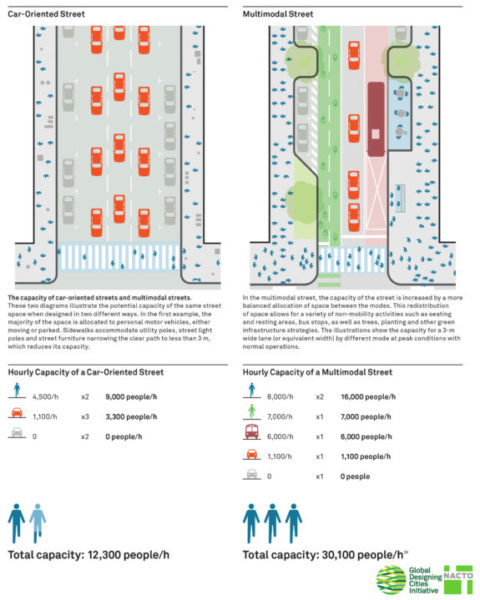Last month, a truck carrying Butane crashed on a major Seattle freeway during a rare flurry of snow, paralyzing traffic for miles.
The whole episode demonstrated just how fragile the freeway system is, and the need for more resilient transportation networks. But the Seattle Times had a hotter hot take. The real culprit, according to the paper's editorial board? Bike lanes that reduced "general traffic capacity."
Tom Fucoloro at Seattle Bike Blog posted this comeback:
It’s hard to know where to start in responding to an editorial like this that is so wildly out of touch with reality in so many ways. At first I laughed. I-5 was closed in the middle of a work day and through the evening commute, but bike lanes are what caused the traffic? I mean, that’s legitimately funny.
But there are many people who were stuck in that traffic mess who are looking for someone to blame, and people biking are convenient scape goats. The region’s largest newspaper is using this obviously-unrelated traffic mess to argue against sorely needed bike safety projects. That’s less funny.
So, where to begin? First, what “bicycle paths” are they referring to? The city has built exactly one bike lane downtown in recent history that displaced a general traffic lane: 2nd Ave. That was in 2014. Seattle has lots of plans for more bike lanes, but the Times Board seems unaware that those plans have been delayed. Certainly plans for bike lanes didn’t cause the traffic jam, right?
But this raises a more important point: One more lane on 2nd Ave filled with stopped or crawling cars would have done nothing at all to help alleviate a total traffic system meltdown that happened last week. If anything, it would have made it worse.
Multimodal streets have more capacity than car-dominant streets. Here’s a graphic demonstrating this concept from the new Global Street Design Guide by the National Association of City Transportation Officials [above].
The Times' suggestion seems to be that every local street in Seattle should be reserved as a cars-only zone in case something impedes freeway traffic. Fucoloro says it betrays a deep-seated ignorance of how city transportation works:
Seattle is a city. Cities are places for people. Downtown Seattle is our biggest employment and destination center. It’s also a neighborhood where people live. Moving a freeway worth of cars is inherently antithetical to what makes Seattle’s downtown the desirable place it is.
There is no car-centric option for moving the growing number of people and goods around Seattle, and the Ed Board is delusional at best to say so (I dusted and found Brier Dudley’s fingerprints all over this one). American cities (including Seattle) have tried to follow the Ed Board’s windshield dream for the better part of a century, and we’ve found that it is impossible to remake city streets so they can carry more cars. Everything we do to meet demand creates even more demand.
More recommended reading today: Tim Kovach weighs the merits of expanding transit to suburban job sites versus concentrating development in transit-accessible locations. Darin Givens considers how better transit can help overcome Atlanta's legacy of racially discriminatory planning. And Bike Portland reports from the Bike League's annual Bike Summit in DC.






